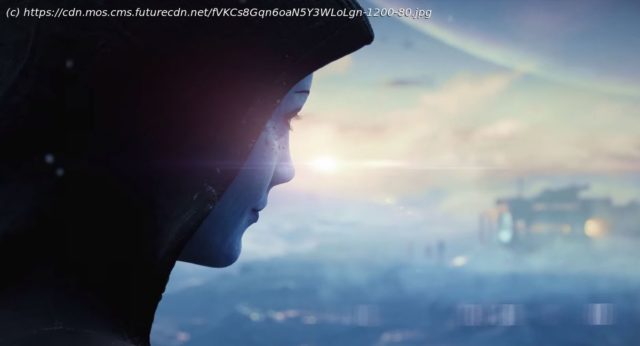In a year or so, I'm sure some critics will reappraise Cyberpunk 2077, highlighting its strengths without years of pent-up hype coloring their perspective—it'll get the Mass Effect Andromeda treatment, in other words. But I doubt that Cyberpunk 2077 will ever be looked at as a landmark open world RPG in the way The Witcher 3 is. It's just a decent sci-fi RPG that had a buggy launch.That's alright—an ambitious open world game didn't need to be a masterpiece to succeed in certain respects—but the muted response is remarkable when compared to the level of excitement that followed Cyberpunk 2077 from announcement to release. Many expected it to be groundbreaking, but just two months later we're more interested in talking about an Early Access Viking survival game.Meanwhile, one of the games that was supposed to be a huge deal in 2020, Halo Infinite, didn't even make it to release. It was jeered so thoroughly after its big gameplay reveal that it was delayed a year. For contrast, there's recently been some nostalgic conversation about the 2004 reveal of Halo 2, where a simple demonstration of dual wielding elicited « oohs » and whistles from an audience. How times have changed!
In a year or so, I’m sure some critics will reappraise Cyberpunk 2077, highlighting its strengths without years of pent-up hype coloring their perspective—it’ll get the Mass Effect Andromeda treatment, in other words. But I doubt that Cyberpunk 2077 will ever be looked at as a landmark open world RPG in the way The Witcher 3 is. It’s just a decent sci-fi RPG that had a buggy launch. That’s alright—an ambitious open world game didn’t need to be a masterpiece to succeed in certain respects—but the muted response is remarkable when compared to the level of excitement that followed Cyberpunk 2077 from announcement to release. Many expected it to be groundbreaking, but just two months later we’re more interested in talking about an Early Access Viking survival game. Meanwhile, one of the games that was supposed to be a huge deal in 2020, Halo Infinite, didn’t even make it to release. It was jeered so thoroughly after its big gameplay reveal that it was delayed a year. For contrast, there’s recently been some nostalgic conversation about the 2004 reveal of Halo 2, where a simple demonstration of dual wielding elicited « oohs » and whistles from an audience. How times have changed! Joe Staten showing off duel wielding for the first time at E3 2004. #Halo2 pic.twitter.com/GAgpsbPqCXFebruary 9, 2021 As we look ahead to the other ‘big’ singleplayer-focused games on the way—that is, games from established studios that fans expect to be transformative—it feels clearer than ever that nothing is a given. Ambition alone gets no applause, and neither does the ability to hold two guns at the same time (although dual wielding is still cool). It feels likelier than ever that a surprise hit such as Disco Elysium, our 2019 Game of the Year, will overshadow any of these big studio productions, at least from a critical perspective. But let’s have a look at some of them, and see what they might have to offer in the years ahead. Excluding Halo Infinite, which I’ll leave be for now, here are some of the most anticipated upcoming games, and what they may have to overcome to meet expectations—if it’s even possible to do so. Starfield When will it be out? Sometime before The Elder Scrolls 6. Within the next few years, we assume. What do we know about it? It’s a singleplayer sci-fi game that Todd Howard says we’ll recognize as a Bethesda game, but that will be different in unknown ways, with « new systems. » Regarding the setting, we know that it’ll take place far enough in the future that space travel is fairly common, but not so far that it isn’t dangerous. Otherwise, it’s a mystery. Why are people excited about it? For two decades, Bethesda Game Studios has stuck to the Elder Scrolls and Fallout, and there’s a sense that its venture into the unknown could lead to a surprising, maybe delightful result—like a classical musician trying their hand at playing a modern genre. Otherwise, Bethesda’s past reputation for ambition is driving the anticipation. Any attempt to make a vast open world RPG like Skyrim or Fallout 3, if that is what Starfield turns out to be, is interesting, even if it doesn’t work. (Maybe especially if it doesn’t work!) What could go wrong? Since we know so little about it, a risk right now is simply that the imaginations of fans will grow bigger than the game, or that little remarks about its ambition will lead to unfulfilled expectations (see: No Man’s Sky). Even the hope that Starfield will be a Fallout or Skyrim-like RPG could be dashed if it turns out Bethesda is doing something unexpected—recall how the online nature of Fallout 76 wasn’t officially confirmed until the full reveal. (In the case of Starfield, though, Howard has said that it’s a singleplayer game.) In general, it’s become clear just how hard it is to capture imaginations with new settings and stories, which is a compliment to the games that have. Obsidian’s The Outer Worlds comes to mind as an example of a recent singleplayer RPG that, while not bad, didn’t come close to generating the attachment that some of the studio’s previous RPGs have, namely Fallout: New Vegas. And while it has its defenders, BioWare’s Mass Effect Andromeda didn’t have anything like the effect of the original Mass Effect games. When it comes to RPGs, past performance is no guarantee of future results, as the investing aphorism goes. It may also be the case that Bethesda’s reputation for bugginess won’t continue to be as endearing as it has been in the past. Ubisoft has released its share of jank, but its recent, more RPG-like Assassin’s Creeds, especially Assassin’s Creed Valhalla, have set a high bar for open world roleplaying.
Home
United States
USA — software After Cyberpunk 2077, it's harder than ever to guess which of these...






